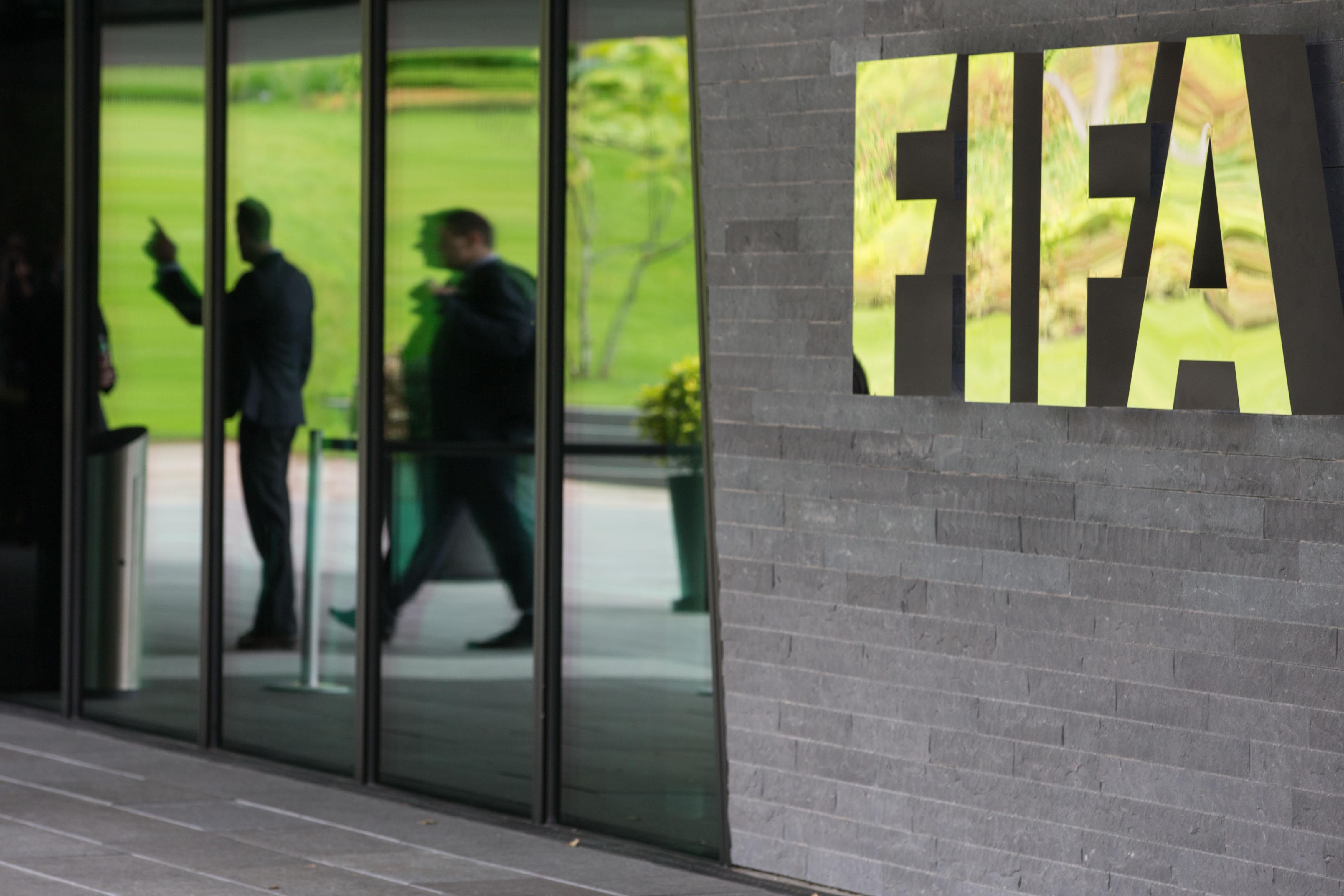FIFA President Sepp Blatter does not like being called a dictator. But, in his 17 years as the most powerful man in the world’s most popular sport, one thing he has had in common with the Muammar Qaddafis and Hosni Mubaraks of the world is that he’s enjoyed the immunity and secrecy provided by Swiss law.* Until now.
Wednesday morning, Swiss police arrested some of FIFA’s highest-ranking officials—not including Blatter—at a hotel in Zurich where they had gathered for the group’s annual meeting. The police were acting on indictments from the U.S. Department of Justice for charges including money laundering and racketeering.
On the same day, Swiss authorities announced they had opened their own investigation into the controversial decisions to award the 2018 World Cup to Russia and 2022 World Cup to Qatar and had seized documents at FIFA’s headquarters in Zurich. This marks a turning point in what has long been a cozy relationship between FIFA and the country that has been its home since 1932.
Switzerland is home to 65 international sports associations, including FIFA, the International Olympic Committee, and the global bodies governing basketball, hockey, gymnastics, cycling, and volleyball. Sports associations including FIFA bring in more than a billion dollars a year in revenue to the country and employ about 2,000 people. There are good and legitimate reasons for sports organizations to have their headquarters in Switzerland: it’s located in the center of Europe, has a highly educated workforce and advantageous tax laws, the IOC is there, and it’s generally a pleasant place to live. But for a group as breathtakingly corrupt as Blatter’s FIFA, his home country’s hands-off regulatory climate and opaque legal system has historically offered its own advantages.
As nonprofit associations, sports bodies based in Switzerland aren’t required to provide financial data and are exempt from many of the nation’s anti-corruption laws. One Swiss lawmaker calling for reform has noted contemptuously that that a multibillion-dollar global organization like FIFA “still has the same status as a Swiss mountain village yodeling association.”
One of the best-known examples of the Swiss approach was a 2010 court ruling in which FIFA officials, including former President Joao Havelange, were found guilty of taking millions of dollars in bribes from a marketing company but then allowed to walk free after agreeing to return the money under a deal that protected their anonymity.* The details of the deal only became public knowledge when five media outlets successfully sued to have the gag order lifted two years later.
Calls for reform began to gain traction after December 2010, when FIFA’s executive committee, meeting in Zurich, made the decision to award World Cups to Russia and Qatar, sparking immediate accusations of corruption in the voting process. That’s when Swiss Federal President Micheline Calmy-Rey, who was due to open the organization’s annual congress several months later, began to take the problem more seriously. “[He] realized there was a reputation issue for Switzerland,” said Jean-Loup Chappelet, a professor of public management focusing on athletics at the Swiss Graduate School of Public Administration. “[Athletics] is small in terms of money and employment, compared to the banks, but the reputation issue is big because sport and [soccer] is so big.”
This was around the same time Switzerland was also taking steps to improve the international reputation of its financial sector, including an agreement to relax its notoriously strict banking secrecy laws in the wake of the global financial crisis and a move to freeze assets held by toppled dictators including Mubarak and Qaddafi.
In 2012, Switzerland’s Federal Sports Office released a report calling for “more robust action” by Swiss authorities to combat corruption. This was at a time when Switzerland was preparing a (since abandoned) bid for the 2022 Winter Olympics.
Last year the Swiss parliament passed a law designating heads of sporting federations like Blatter and Bach as “politically exposed persons,” a designation—usually used for politicians—that allows for more scrutiny of movements of money between bank accounts held in Switzerland.
Eric Martin, chairman of Transparency International’s Swiss chapter, says that law, nicknamed “Lex FIFA,” was more symbolic than anything else. The real test for whether Switzerland is finally tackling sports corruption is a bill under consideration that would make private corruption a criminal offense.
Swiss law considers private corruption, including bribes not involving public officials, under a legal category called “unfair competition.” In practice, this means that under the current laws, prosecutors can open a case only if there’s a complaint, which is rare in corruption cases.
It does happen sometimes. After an internal investigation, FIFA asked authorities to investigate the 2018 and 2022 World Cup decisions, but the association is awkwardly being treated as the aggrieved party in this case—as well as the body being investigated—leading to reasonable suspicions that senior officials will again be let off the hook. If private corruption were made a criminal matter, prosecutors would be given much wider latitude to look into the many allegations of high-level bribery within soccer’s governing body.
“It’s very important that the Swiss parliament will now approve this new legislation,” Transparency International’s Martin says. “Private corruption is as damaging as the corruption of public officials and it has to be prosecuted in the same manner.” Martin is optimistic that the media attention surrounding this week’s arrests will increase the bill’s chances of passage.
No matter what happens, FIFA is unlikely to pick up and leave—most countries already have similar corruption laws, and a Swiss base has other advantages—but after decades of turning a blind eye, Switzerland may finally be making life difficult for one of its most powerful citizens.
*Correction, May 27, 2015: This post originally misspelled former FIFA President Joao Havelange’s last name. It also misstated that Blatter ran FIFA for 27 years. He ran it for 17.
